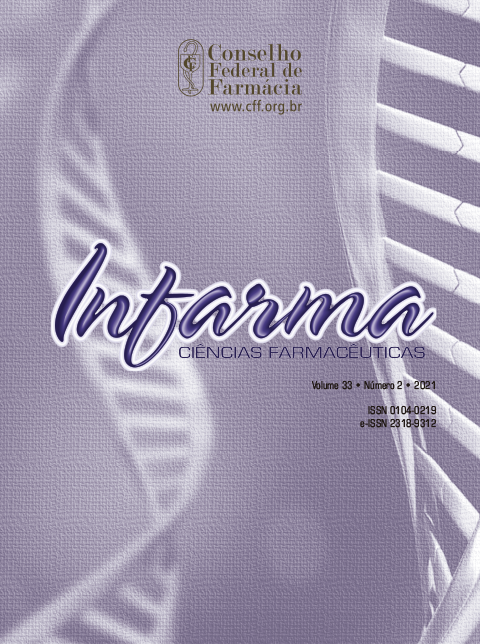DRUG SUBJECT TO SPECIAL CONTROL PRESCRIPTION IN A COUNTY OF SERIDÓ POTIGUAR, BRAZIL
DOI:
https://doi.org/10.14450/2318-9312.v33.e2.a2021.pp167-174Keywords:
drug prescription, psychopharmaceuticals, primary health care.Abstract
The prescription of medications constitutes a therapeutic intervention that must consider technical-legal and user-centered aspects to achieve effective therapy and patient safety. Thus, this study aimed to evaluate prescriptions of the subject to special control drugs in primary care in Caicó, RN, Brazil, based on the legislation in force, through a cross-sectional, descriptive- exploratory, quantitative study, based on the special control prescription prepared by physicians during the period from July 2018 to June 2019, at the municipal Pharmaceutical Supply Center. Pharmacological classification of prescription drugs was also analyzed and their compliance with the Municipal List of Essential Medicines. In all, 1.682 prescriptions were evaluated; 1.7% of these were eliminated due to readability issues, meaning they already were legislation non-compliant. There was a predominance of non-compliant prescriptions (99.77%), whose items duration of treatment (97.1%), route of administration (89.3%), and drug nomenclature by active ingredient (14.6%) were the most prevalent regarding these non-conformities. As for the pharmacological classes of the prescribed drugs, benzodiazepine anxiolytics predominated (30.97%). All prescription drugs complied with the municipal essential drug list. There is a need to reorient medical professional training, through insertion and/or emphasis on strategies for preparing prescriptions in compliance with technical-legal and user-centered precepts, in addition to interprofessional education and work, in order to contribute to user-centered assistance, improved patient safety, access, and effectiveness in the context of health care.
Downloads
Published
How to Cite
Issue
Section
License
Authors who publish in this journal agree to the following terms:
- Authors retain the copyright and grant the journal the right of first publication, with the work simultaneously licensed under the Licença Creative Commons Attribution which allows the sharing of work with acknowledgment of authorship and initial publication in this journal.
- Authors are authorized to take additional contracts separately, for non-exclusive distribution of the version of the work published in this journal (e.g. publish in institutional repository or as a book chapter), with acknowledgment of authorship and initial publication in this journal.
- Authors are allowed and encouraged to publish and distribute their work online (e.g. in institutional repositories or on their personal page) at any point before or during the editorial process, as this can generate productive changes as well as increase the impact and Citation of published work (See O Efeito do Acesso Livre ).


